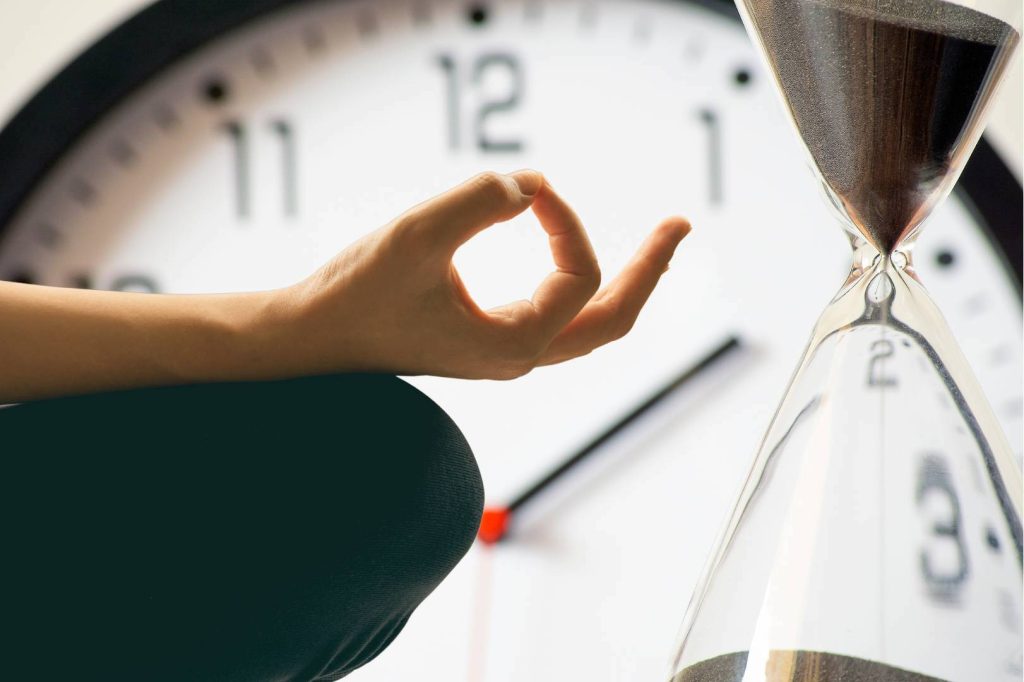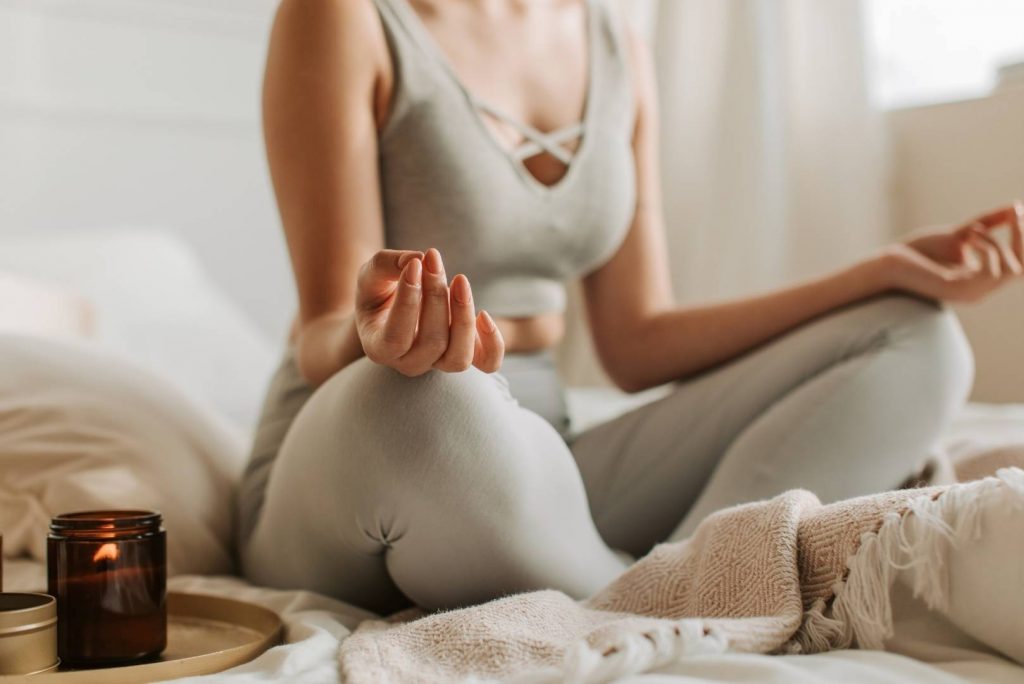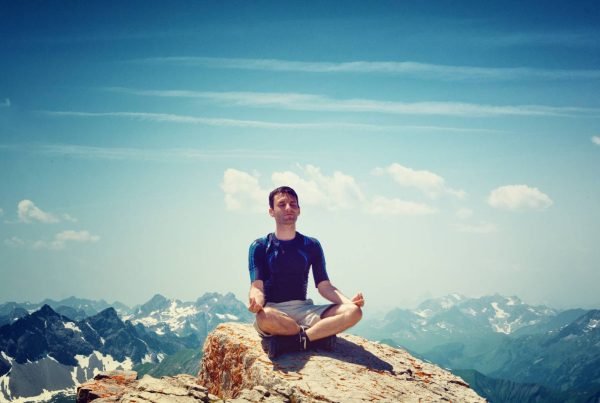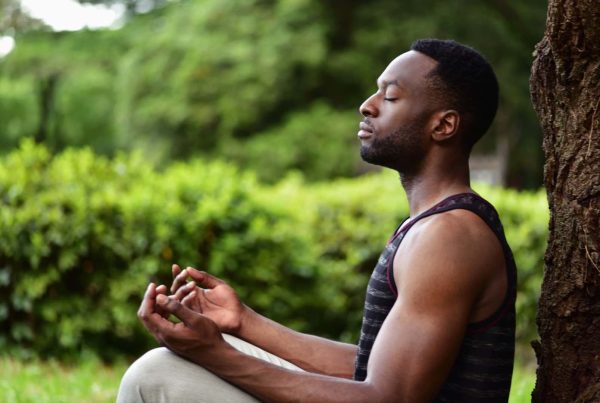Meditation is a daily practice for me now. One that has changed my life for the better. But during my journey, I often wondered if I should be using a timer or not.
Meditating with or without a timer both have their benefits. In general, it is recommended that beginners start with a timer. Then as you become more experienced you can meditate without a timer or guide. Giving you more freedom in how you conduct your practice.
Let’s explore both options, so you can make an informed decision.
Should You Meditate With or Without a Timer?
Meditation is a personal practice. Some people meditate with a timer and others don’t. Likewise, the decision to follow a guide or not is also a preferred preference. In traditional practices like Theravada Buddhism, they use neither.
That doesn’t mean you need to follow ancient traditions. At the end of the day, It’s up to you. The most important thing is figuring out whether using a timer or not will enhance or hinder your meditation.
There are advantages and disadvantages to both. So, before making any kind of decision it’s best to weigh up the options, then experiment. That’s how I always approach meditation. Everybody is different and you are unique. What works well for somebody else may not resonate with you at all.
Allow me to give you some guidance by exploring the advantages of both.
Oh, and btw I also wrote an article on Guided vs Unguided Meditation. Feel free to give it a read if you also need help deciding between these two options.
The Benefits of Meditating With a Timer

- Structured practice: A timer provides you with a clear start and end to your meditation. Giving you a more consistent and rigid session to stick to. This is especially helpful for beginners.
- Better time management: By having a fixed time to meditate, you can schedule your other commitments around it. And if you have to be somewhere important soon, setting a timer means you won’t run the risk of meditating too long.
- Gradual progression: Doing a timed meditation gives you a starting duration to work with. Then over time, you can gradually increase the length of your sessions. Allowing you to deepen your practice slowly in stages.
- Experimentation: Having this set time means you can also assess how it felt, and play around with shorter or longer durations. Giving you the opportunity to gauge what works well for you.
- Increased discipline and focus: Setting a timer gives you a dedicated period of time to commit to your meditation, no matter what happens.
The Benefits of Meditating Without a Timer

- Freer practice: Having no timer means you can choose when to begin and end your session. It’s not dictated by a set time. This can allow your practice to come to a natural end when you feel ready. More experienced meditators tend to meditate in this way.
- Intuitive and adaptable practice: Meditating freely means you can adjust each session accordingly. Feeling calm today? Meditate for longer and allow it to end naturally. Feeling restless and agitated? End your meditation earlier.
- Natural progress: Without a timer, your meditations will naturally fluctuate and develop over time. You don’t have to set goals and gradually increase them. In fact, sometimes this can be counter-productive. Instead, go with the flow, day by day.
Bonus Tip: You can always set a stopwatch and look at it afterwards. That way you can still assess how long you’ve been meditating, without a timer going off.
- Reduced distraction: Whilst setting a timer can help to avoid clock-watching. For some people, it can be more distracting. They may wonder “How long has it been” or “How long do I have left?”. Using no timer means you’ll be free from this concern.
- Deeper insights: Not only can a timer distract you, but it can interrupt you just as you’re getting into a state of rest and stillness. Meditating freely can allow you to cultivate more presence, and deepen your practice.
How Lond Should You Meditate For?
If you decide to meditate with a timer or stopwatch, you may be wondering how long to aim for. For beginners, I’d suggest starting out with ten minutes. This is a useful starting point that isn’t too long. However, if that feels too much, begin with 5 minutes.
Longer sessions are hard to settle into, so please don’t rush the process. Otherwise, you may put yourself off meditating for good. We don’t want that. Instead, build it up over time. Experiment and see what feels comfortable.
The downside of meditating for a short period of time is that it’s hard to settle and ground yourself. Especially if you’re feeling anxious.
This is why I find longer sessions are more beneficial. Meditating for 20-30 minutes to settle, gives you more space and time to calm your nervous system down.
Curious as to how that works? Check out my detailed article. You may be surprised at how much meditation can empower you to regulate your own body.
The more relaxed and calmer you become, the deeper you’ll go into meditation. As this happens you can find stillness, presence, and serenity.
This doesn’t always happen but when I find these moments of bliss, I cherish them.
“Meditation is painful in the beginning but it bestows immortal bliss and supreme joy in the end.”
— Sivananda
How to Decide Which is Right for You
As I said earlier, meditation is a personal practice. It’s up to you whether to use a timer or not. The best thing to do is to experiment and explore. Try meditating with and without one. What did you like and dislike? Write down your thoughts and experience.
See what works best for you.
You don’t have to stick to one option either, you can switch between the two. I do this all the time.
Remember that the essence of meditation is to be present, mindful, and gather insights. A timer is simply a tool that you can use to support and structure your practice. Approach your sessions with openness, patience, and acceptance.
Be willing to learn, adapt, and try out new things.
Meditate with this mindset and you can’t go wrong.
Using a timer or not should be based on your own unique meditation journey. So, what are you waiting for? Oh, and if you find that you keep coming up against the same obstacles. Check out my article, giving you solutions to your common meditation frustrations.
Meditation isn’t easy, but don’t worry, I’m here to help.
Take care of yourselves,
Chris from Mindful Way to Be



